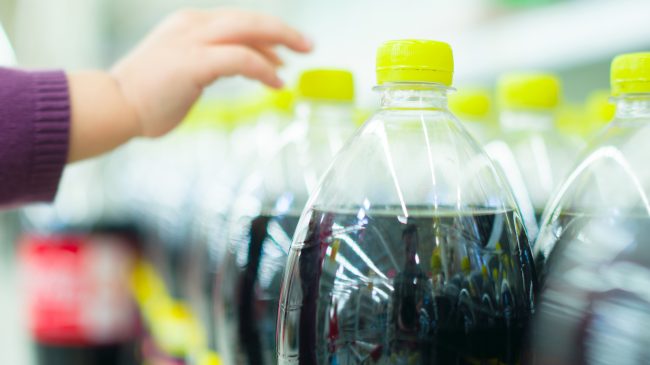Seattle’s press is abuzz with stories of sticker shock after residents headed to the grocery stores Jan. 1 and found the price of soda had skyrocketed thanks to the city’s tax on sweetened beverages.
Approved in June last year by the Seattle City Council, the 1.75 cents per ounce tax hit shoppers hard. For example, the price of a Gatorade Frost Variety Pack at Costco, which usually cost $15.99, jumped to $26.33.
But amid the Twitter storm and local news reports, it’s important to remember why the tax was passed in the first place and whether the reasons given for it stand up to scrutiny.
The tax is meant to cut soda consumption and therefore obesity while raising revenue for a variety of health- and education-related programs. While soda taxes may appear an easy tool to combat obesity and raise money for social programs, the truth is more complicated.
First, the health side. Soda consumption nationwide is at a 31-year low. Consumers have access to a plethora of diet and other sugar-free drinks which are increasingly popular, and there is no lack of information about how drinking too much soda can be bad for your health. In this wider context, a soda tax appears to be a strange choice of tool to combat obesity.
More importantly, there is no evidence from anywhere in the world that soda taxes have any impact on obesity, let alone broader health outcomes. In Mexico, which introduced one of the highest soda taxes in the world, there hasn’t even been a fall in consumption, let alone obesity.
While it is true that, all other things being equal, a price increase will reduce consumption, that is not the only effect a price increase has. Consumers change their behavior to avoid the higher prices by shopping outside city limits, as they have in Philadelphia, where sales of carbonated soft drinks fell in the city by 55 percent, but sales in the surrounding towns rose 38 percent.
Shoppers may also substitute soda for other sugar-heavy or high-calorie products, such as sugary beverages that have milk as their primary ingredient, which is not subject to the tax.
Some of these substitution effects may even carry an even greater health risk than soda. A 2012 study examining an American city found that while a 10 percent soda tax did cut sales for one month, there was no decrease in purchases over a three-month or six-month period.
And in beer-drinking households, the tax actually led to an increase in beer purchases.
On the revenue side, it is understandable that Seattle wants to raise money for social programs, but relying on a soda tax to do so commits a cardinal error of sound public finance by relying on a high tax on a narrow range of products to produce a substantial and reliable source of revenue. Because purchases of these products can vary dramatically, and we do not know exactly how consumers will react to the tax, the revenue source is inherently unstable. Again, we can look to Philadelphia, where revenue from the soda tax has not kept pace with expectations, coming in at $7 million below projections for the first year alone.
Taxes intended to fund social programs should be low and broad-based. Alternatively, legislators could reallocate or cut spending in less vital areas. But even if all of Seattle’s revenue estimates are met, the city’s planned allocation of those resources doesn’t suggest value for money. Of the $15 million the city expects to raise from the tax, $2.4 million will go to the Fresh Bucks initiative, which gives vouchers to needy families to purchase healthy foods. But according to city officials, just $400,000 will actually be spent on vouchers while $2 million will go to administrative costs.
Soda taxes are regressive, hitting poor families hardest as the poor spend a larger portion of their budget on groceries than the rich. The impact on local small businesses will also be negative. Unlike Costco, mom-and-pop shops don’t have the luxury of being able to redirect their customers to one of their other branches to avoid the tax.
Soda taxes are a tempting option for policymakers. They appear to be a win-win solution that will both raise revenue and improve health, all the while winning accolades from hyperactive interest groups.
Unfortunately, there are never cost-free solutions in public policy.
Improving public health and ensuring access to healthy food are laudable goals, but there are better and more effective ways to achieve these goals than hiking grocery bills and damaging small businesses.

